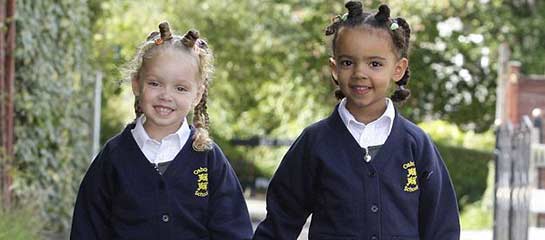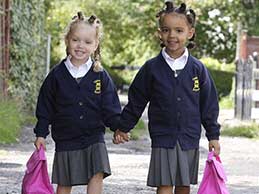By Tamarin Epstein, Educational Psychologist at PsychMatters
Starting “big school” is an important milestone in your child’s lifelong process of learning and development. Although many children attend nursery school and Grade R, Grade 1 marks the start of their formal education.
The demands of a formal school environment require children to have reached a certain developmental level.
Every child develops at his/her own rate. Many individual and environmental factors play a role in enriching or delaying their development. A child may develop slower in certain areas, and faster in others. Although the range of normal development is broad, the child may have a gap in one or more vital areas, at the time of achieving school going age. Unless addressed or accommodated, these gaps may translate into barriers to learning.
Sometimes, a child may not yet have mastered the motor or verbal skills, have the attention span, or the level of cognitive, perceptual, or emotional development required for success in Grade 1. Some children lack the independence and social skills needed.
A child who was born prematurely, suffered from health problems (such as illness, or eyesight or hearing problems), or has had delays in achieving their early milestones (e.g. children who walked or talked later than normal) may benefit from spending an extra year in Grade R. This will give them more time to achieve the expected level of development.
Children who are too young, or not yet “Grade 1 ready” are placed at a distinct disadvantage, on entering the formal education system.
Sometimes, through the continuous assessment process at school, teachers are in a position to spot their difficulties early. However, it can take years for some children with barriers to learning to be identified. These children ‘fly below the radar’, because they appear to be achieving reasonably, or even well. This problem especially affects highly intelligent children with undiagnosed learning problems. In many cases, barriers to learning are perpetuated by a number of factors. If these factors are not correctly identified and remediated (where possible), the child will experience increasing levels of difficulty in aspects of their learning. As a result, some foundational (Grade 1-3) learning will not be internalized by the child, and they progress through the grades until the gaps in their learning become more apparent. This happens when the standard, pace, and mode of teaching delivery of school work becomes too challenging for them to cope with. Lacking important foundational learning and skills, their grades start sliding, along with their self-esteem. It is often only at this point that the child is referred to an Educational Psychologist for a scholastic assessment.
Although parents cannot make a child Grade 1 ready, there are some areas where we can assist in giving our children enrichment, and supporting them in building the skills they need.
This includes specific activities we can do with our children.
Keep these activities fun, and be very patient with your child. Repeat them, to give him/her plenty of practice.
Cognitive, perceptual & motor skills:
- Teach your child to tell the difference between different shapes around them, and how to draw basic shapes (e.g. a star, circle, rectangle, square). Play a game by drawing the outline of an object, and asking your child to see if they can guess what it is. Let him/her colour in the shape, and then draw a shape/object for you to identify and colour in.
- Teach your child to count everyday objects (e.g. how many biscuits are in the bowl? How many pets do we have?).
- Help your child understand the concepts of size, relativity and dimension (big, small; longer, shorter; heavier, lighter; darker, lighter; faster, slower…), similarities (what is the same about 2 things) and groups (e.g. these are both fruits, these are both animals), differences, and opposites.
- Do puzzles and build things using blocks and Lego with your child.
- Play games where you pretend to be an animal, and invite your child to guess which animal you are. Make the appropriate sounds and movements. Give them a turn to pretend to be an animal, and for you to guess what they are.
- Help your child learn how to hold a pencil correctly, and draw with it. Help him/her learn how to draw a straight line, a curved line, etc. Show him/her patterns around them, e.g. stripes, spots, flowers.
- Teach your child how to cut with children’s scissors, use sellotape and glue, rub out with an eraser, sharpen a pencil, etc.
- Teach your child how to eat nicely (using cutlery, with mouth closed, not talking with mouth full).
- Encourage your child to practice physical skills (such as hopping, skipping, jumping, running, and throwing, kicking and catching a ball).
Writing readiness:
- Teach your child to write his/her own name with a pencil and a paintbrush.
- Teach your child to write from left to right.
Reading readiness
- Teach your child to name colours. Point out colours around them (e.g. “Look how lovely that tree is, with the pink and white blossoms”). Ask questions about colours (e.g. “what colour T-shirt do you want to wear today?”, “Ok, let’s go to your cupboard and see if we can find a blue one..”).
- Teach your child to say the names and sounds of alphabet letters, and recite the alphabet.
- Read to your child, with him/her next to you or on your lap, showing the book and following along with your finger. Discuss the story and pictures. Ask one or two questions about the story or characters, and answer theirs. Ask whether s/he likes the story, what s/he likes/doesn’t like about it, and why. Give and explain your opinion too.
- Make sure your child sees you reading and tell him/her how nice it is to be able to read, to learn new things, and how enjoyable you find reading.
Speech readiness:
- Sing nursery rhymes and songs, to and with your child. Teach them how to clap to the rhythm, or bang a stick or drum to the beat.
- Have conversations – laugh and chat with him/her (e.g. in the car, at dinner).
- Help your child develop his/her vocabulary. Avoid baby talk, and use a wide range of words, including some complex ones. Ask him/her if they know what the word means. If they say no, explain the meaning of the word, and use it in one or two sentences. Encourage your child to think of a sentence using the new word. Make a mental note to use the new word again, later in the day, and in the future.
- Make up your own bedtime stories. Encourage your child to make up stories for you. Teach them about stories (e.g. structure – they have a beginning, middle and end; author – someone makes up/tells the story).
Social & emotional skills:
- Teach your child how to ask for things, to ask for help when they need it (and make sure you give them help, when they ask for it), and to say please and thank you.
- Share with your child, and teach him/her about sharing.
- Provide opportunities to interact with other children. Gently and patiently teach him/her the rules of play (e.g. having good manners, playing nicely, not taking toys away from others, not hurting others, reporting hurtful behaviour to an adult, the difference between good touch and bad touch).
- Gently help him/her to understand the rules of conversation (e.g. turn taking, not interrupting, keeping quiet and listening to what is said, following instructions where applicable).
- Help your child to identify and talk about his/her feelings. Explain that it’s ok to feel bad/sad/angry, and we can’t feel happy/good all the time. Teach the difference between feeling bad and acting badly. Give your child appropriate outlets for his/her emotions, e.g. allow him/her to punch a punching bag/pillow/shout and cry when they are having a timeout. Venting their anger when alone is an appropriate way to express themselves.
- Teach your child that s/he can’t always have his/her own way.
Responsibility, independence & concentration skills:
- Teach your child to put away and tidy up the toys/objects from one activity, before starting a new one.
- Teach him/her independence – how to do as much as possible for him/herself, e.g. make own bed, brush own teeth, blow nose, dress and undress him/herself, use the toilet on his/her own (wipe properly, wash hands, etc).
- Help your child to understand and remember 2 and 3 part instructions (e.g. first, fetch your pencil, then draw a circle, and colour it in).
- Maintain a daily routine for your child, which includes helping you with brief tasks, e.g. feeding the pets, laying the table, picking flowers from the garden for the table.
If you are in doubt as to whether your child is Grade 1 ready, a School Readiness assessment by an Educational Psychologist is advised.
Contact PsychMatters on (011) 450-3576 to arrange Grade 1 readiness testing for your child.



